 Control of city council was effectively decided in August, when candidates supported by mayor Christopher Taylor won every Democratic primary. Taylor still faces independent Eric Lipson on November 8, and there’s a nominal challenge to Jenn Cornell, who defeated incumbent Ali Ramlawi in August. But the mayor and his allies seem certain to emerge with an impregnable 11–0 majority.
Control of city council was effectively decided in August, when candidates supported by mayor Christopher Taylor won every Democratic primary. Taylor still faces independent Eric Lipson on November 8, and there’s a nominal challenge to Jenn Cornell, who defeated incumbent Ali Ramlawi in August. But the mayor and his allies seem certain to emerge with an impregnable 11–0 majority.
Other votes will be more consequential. A proposed climate millage would raise an estimated $150 million over twenty years to fund Ann Arbor’s ambitious carbon-neutrality goals. An unprecedented thirteen people are running for school board, including a slate backed by critics of the pandemic school closings. And the winner of the two-way race for circuit court judge will likely have a job for life—incumbent judges are rarely challenged and almost never defeated.
Least consequential are the contests for library board and county commissioner, but not because the jobs don’t matter. The nonpartisan library candidates all support its current direction. And Ann Arbor’s Democratic dominance virtually guarantees the election of the party’s commissioner candidates in the city: Andy LaBarre, Katie Scott, and Yousef Rabhi, a former commissioner who’s back after being term-limited in the state house.
Community Climate Action
Proposal 1, the city’s Community Climate Action millage, would cost homeowners $125 annually for every $125,000 of taxable value, generating an estimated $6.8 million the first year. Over twenty years, it would fund what city sustainability and innovations director Missy Stults calls a “beautifully aggressive and audacious goal” to achieve carbon neutrality by 2030. Among other things, the millage could fund expanded composting, recycling, and reuse programs; solar and geothermal renewable energy; home and transportation-related electrification; and preparedness for climate change and natural disasters.
As of mid-September there was no organized opposition to the millage, while supporters had “a campaign up and running [with] door literature, volunteers, yard signs, and mailers,” Taylor says.
If the goal is to get to carbon neutrality by 2030, why a twenty-year tax? “We’ve got to maintain the policies,” Stults says. “We’ve got to continue to nurture the green infrastructure that we build.”
If the proposal doesn’t pass, she says, they’ll “reassess and figure out what’s the strategy, what are the most important high-win potential activities that we want to move forward with.”
Asked if supporters will try again next year if it fails, Taylor says merely, “I’m working to ensure that it does pass.”
City Council
Taylor, fifty-five, soundly defeated former councilmember Anne Bannister in August’s Democratic primary. In November, he’ll likely do even better against lawyer Lipson, seventy-two. A former planning commissioner and Democratic primary candidate, Lipson is running as an independent this time, on a platform much like Bannister’s.
“I am very concerned that the current mayor’s stance on development is to give free reign to developers without concern for public benefit in exchange,” Lipson says. “The up-zoning of the State and Eisenhower area as a transit corridor enriched the mayor’s biggest donors.” He says he would “wait to up-zone these corridors until after the master plan is completed, which is scheduled for the upcoming year.”
Taylor responds that the rezoning wasn’t a gift: “It is an opportunity for us to address a number of our biggest problems and … overcome decades of policy that have resulted in a housing and climate crisis.” He adds that “the up-zoning of transit corridors is entirely consistent with the existing plans,” and the new one will not provide “some magical moment of clarity.”
In Ward 4, Jonathan Hoard is on the ballot as an independent challenging Democratic primary winner Jenn Cornell, but in September he had no political web presence and wasn’t returning calls and emails.
Circuit Court
Twenty-second Circuit Court judge Archie Brown retired in August after twenty-six years on the bench. Marla Linderman Richelew and Arianne Slay got the most votes in August’s nonpartisan primary and advanced to the November ballot.
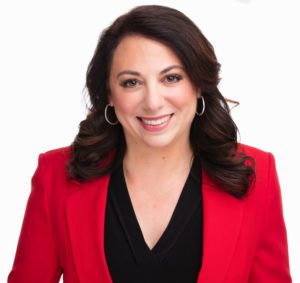
Marla Linderman Richelew.
Linderman Richelew, fifty-one, describes herself as a legal “sole practitioner,” and is executive director of the Washtenaw Association for Justice and cochair of the federal bar section of the county bar association. She’s endorsed by Michigan attorney general Dana Nessel, state rep Donna Lasinski, and former state senator Alma Wheeler Smith.
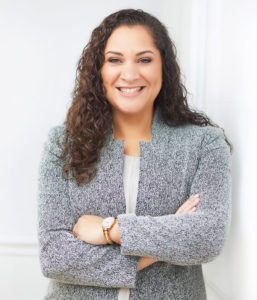
Arianne Slay.
“I believe restorative and rehabilitating tools need to be embraced by the courts,” she says. “I’m going to make sure we have every problem-solving court. We can start with a mental health court at the circuit court level for both juveniles and adults.”
Slay, forty-three, is an Ann Arbor deputy city attorney working on justice reform, civil litigation, and the independent police oversight commission. A former assistant county prosecutor who ran unsuccessfully for the top job in 2020, she’s endorsed by Brown and judges Carol Kuhnke, Tracy Van den Bergh, and Pat Conlin.
“Justice is personal for me,” says Slay. “The justice system overall, whether it be civil or criminal, has not sparked a lot of trust in the history of our county … I don’t want to speak ill of anyone who’s currently in the system, because we have a lot of great judges who are very pro-transparency”—but she believes that “we need a public-facing data collection system that’s consistent across the state,” and she’d work to implement that here.
Ann Arbor Board of Education
School board elections usually attract a lot of candidates, but having thirteen is unprecedented. Four incumbents’ terms are up, but only one is seeking reelection, and only one other candidate has run previously.
Two candidates are aligned with Ann Arbor Reasonable Return, a parents group that fought last year’s school closings, and six others distance themselves from the decision. Five are endorsed by dissident board members—four by Jeff Gaynor and one by Ernesto Querijero—and five by the Ann Arbor Education Association (AAEA), the local teachers union.
____
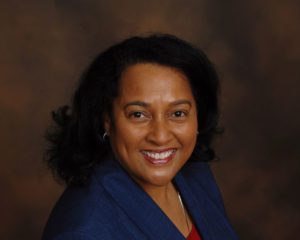
Susan Baskett.
Incumbent Susan Baskett, sixty-two, is a nineteen-year vet who cites her “proven track record of being committed to our students.” She wholeheartedly supports Swift, emailing she did a “good job” before the pandemic, “an even better job” during the pandemic,” and that she’ll “do an excellent job post pandemic.” She’s endorsed by the AAEA.
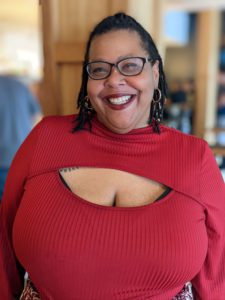
Jamila James.
Nurse Jamila James, forty-seven, says she’s running for a second time because “I still hold the same thoughts–that our schools are not preparing our kids for the future.” She acknowledges that “a lot of people are upset with the current school board,” and thinks they could have done more to get the youngest students and those with special needs back in the classroom sooner–but “I think it was a good decision to close our schools.” Endorsed by the AAEA and Querijero, she says, “I’m honest, I’m direct, I’m transparent, and I’m there to fight for our kids.”

Kai Cortina and Lena Kauffman.
Lena Kauffman and Kai Cortina are running together. Both are members of Ann Arbor Reasonable Return—Kauffman founded it, and Cortina’s wife is a board member.
“The school board is not good at its own job,” says Cortina, fifty-eight, a U-M psych professor. “School board meetings have deteriorated to basically your dog-and-pony show of the superintendent [saying] how wonderful we all are.”
Kauffman, forty-eight, a writer, agrees. “At the time that the community really needed to know what was actually going to likely happen—and internal discussions with the board show this—they were mostly talking about ‘how do we present this to the community in a more palatable way in this dire situation?’”

Jeremy Lapham.
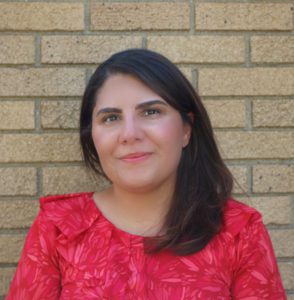
Rima Mohammad.
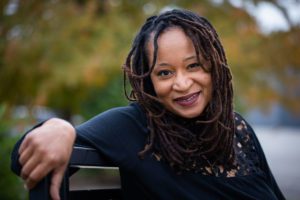
Jacinda Townsend Gides.
Jeremy Lapham, Rima Mohammad, and Jacinda Townsend Gides also are running as a slate. “Parents were frustrated” during the pandemic, says Lapham, forty-three, a nurse practitioner at the Pathways to Success alternative high school. “Many people were unhappy with the decisions that were made, with everything from closing schools to offering hybrid” virtual and in-person instruction.
Townsend Gides, fifty, agrees. “The community was screaming that it needed schools to return to in person,” she says. “Those voices weren’t being heard.”
“I haven’t seen any transparency as far as the specific reasons, or any data points to really support [the decisions to close],” says Mohammad, forty-two, a U-M pharmacy prof. All three are endorsed by Gaynor; Townsend Gides also has the support of the AAEA.
____
The remaining six candidates are running independently. Four think Swift and the board did a good job with the pandemic and its aftermath. One thinks they should still be doing more to limit the spread of Covid, while the other, an anti-masker, thinks they’ve done too much.

Barry Schumer.
Barry Schumer, sixty-eight, cites his twenty-three years’ experience in public education as a clinical social worker. He thinks Swift is “doing a pretty good job” with the pandemic, but is concerned about student achievement. Test scores “are far above the state averages for reading and math proficiency,” he emails, “but shockingly inadequate for our community.”

Andy Spencer.
Andy Spencer, fifty-two, a health care scientist, says he’s neutral on Swift’s handling of the pandemic but thinks that she’s done “a good job” since the schools reopened. He’s running because he’s “passionate about public schools as a student, a son of teachers, and a parent of students.” Endorsed by the AAEA, he says that as a scientist “I have a knowledge base and skill set that isn’t currently on the board.”
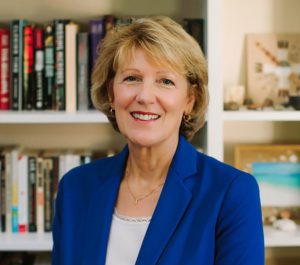
Susan Ward Schmidt.
Susan Ward Schmidt, sixty-five, says Swift’s handling of the pandemic was “reasonable.” A retired special ed teacher and a former East Lansing school board member, she says she knows “how to educate children and to create an environment for children and teachers.” She’s endorsed by Gaynor and the AAEA.
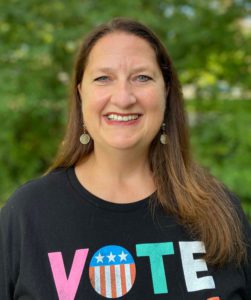
Leslie Wilkins.
Leslie Wilkins, fifty-one, thinks Swift did a “good job” during the pandemic and supports the current mask-optional policy because it gives “autonomy back to families.” She says she doesn’t “have an agenda” but that after fourteen years in Ann Arbor PTOs, she’s “really good with working with people, getting in groups of people, making sure that the group as a whole makes good decisions.”
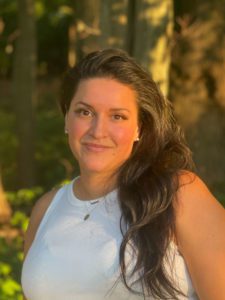
Alex Wood.
Alex Wood, forty, an AAPS grad and U-M computational medicine postdoc, says she was initially “really impressed” with the schools’ handling of the pandemic but “returning with limited safety precautions [put] everyone at risk.” In an email, she points out that last year, with universal masking, AAPS “reported 56 Covid cases in the 5 weeks school was open in Aug & Sept; for this 22/23 year, in only the first 3 weeks of classes (with no masking) there have already been 516. Allowing uncontrolled spread is the fastest way to take us right back to classrooms without teachers, or entire school days and bus routes canceled due to outbreaks among staff.”
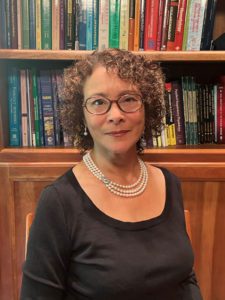
Paulette Metoyer.
Paulette Metoyer, an Ypsilanti internist who ran unsuccessfully against Washtenaw County treasurer Catherine McClary as a Republican in 2020, couldn’t disagree more. Metoyer, who declined to give her age, emails that masks “should not be used for the purpose of preventing disease on anyone, child or adult. And needless to say they should not be mandated for school children.”
Library Board
Unlike the school board candidates, all six folks running for three seats on the nonpartisan library board are happy with what they see.
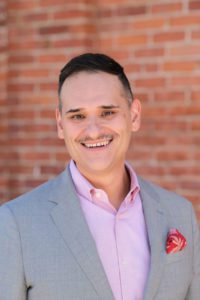
Jim Leija.
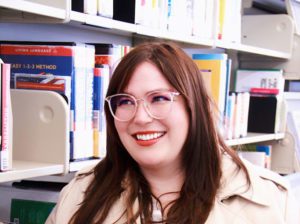
Cat Hadley.
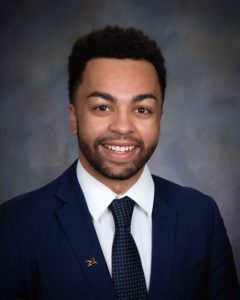
Aidan Sova.
Three board members’ terms are up, but only president Jim Leija, deputy director of the U-M Museum of Art, is seeking reelection. He’s forty-three and is running with U-M poli sci prof Cat Hadley, thirty-four, and Aidan Sova, twenty-three, a product support consultant at Google and a member of the city’s Human Rights Commission. All praise the library’s current direction and say they want to be on board as it gets even better.
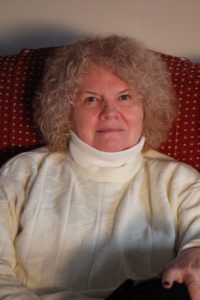
Sara Duvall.
Sara Duvall, seventy-three, is a retired Skyline teacher and AAPS district chair for secondary library services. She says her “particular interest is the future of libraries … the issue that comes up first is always accessibility—that is, how can we ensure that everyone, rich or poor, has access to information?”
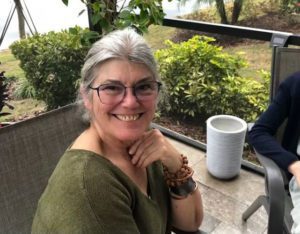
Sherrie Kossoudji.
Sherrie Kossoudji, sixty-eight, a U-M associate professor of social work, says she’s “really just learning” about the board but thinks that “the library is moving in the right direction, although it may not be moving fast enough.”

John Schaeffer.
John Schaeffer, seventy-three, a 10,000 Villages volunteer and past president of two library boards in other communities, says of the downtown library, “I just love the place.” He wants to “see what I can do to help them move forward and further improve.”
—
Calls & Letters | November 2022
James supported school closings
Our apologies to school board candidate Jamila James: in our October election feature, we misquoted her response to a question about what she’d have done differently during the pandemic. James thinks the district could have done more to get the youngest students and those with special needs back in the classroom sooner—but as a nurse who prioritizes safety, “I think it was a good decision to close our schools.”
She’s running for the second time, she says, not because of the closings, but because “I still hold the same thoughts—that our schools are not preparing our kids for the future.”
Gaynor’s endorsements, Hadley’s occupation
School board member Jeff Gaynor emailed to point out that we’d missed one of his endorsements: He’s also supporting Jacinda Townsend Gides. And library board candidate Cat Hadley corrected an egregious error in our description of her: “I am not a professor of political science,” she emailed. “I graduated last spring with my bachelors in political science.”
Thanks for the research.
Where in your liberal paper do you make room for those of us who know that the PLANdemic was instituted for political reasonss? I search COVID and find result after result listing fraudlulent numbers and ZERO entries about COVID being a BIG FAT LIE. Same old SAME for your city I GUESS YOU’LL BE VOTING FOR THE ENEMIES AT WHO, WEF, and NWO and UN… BUT THEY DON’T NEED VOTES TO TAKE CONTROL. But they still need to block voices like mine. Everyplace we go.